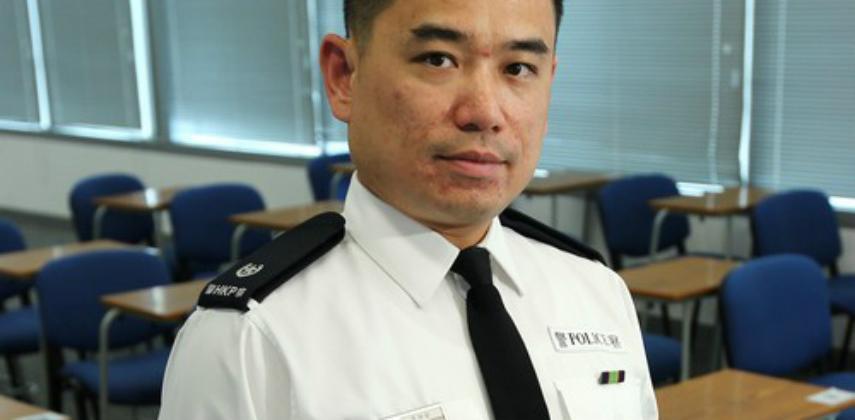In line with the variety of job opportunities, the criteria for new recruits are also broad, says Francis Cheung Kwok-wai, chief inspector of police.
"We welcome people with different social and educational backgrounds to join us to serve the community, but they need to be competent and mature," he says. "They must be eager to serve the community as a professional police officer, and they must share our values."
Successful candidates need common sense, good judgment, a mature approach, good communication skills and the ability to put people at ease. Much of the work involves dealing directly with members of the public, so communication skills are particularly crucial.
"We deal with people, so it's very important that they can communicate," explains Cheung.
"For police inspectors, we look for more," he says. "We look for leadership potential - we are looking for people who can lead a team. We are [also] looking for management abilities. [Recruits] must have good personalities and values, and share the common values of our police force."
The level of preparedness shown by many Generation Y candidates has impressed the force. "They are smart, they know how to research and they use the internet extensively, so they are very well-prepared," notes Cheung.
The Hong Kong Police force is an attractive career choice for many of these candidates. "They look for a job where they can make a living [that is] meaningful," he says. "This is good, because we are looking for people who want to do something meaningful. The job is about solving problems."
Superintendent Patrick Lee Chung-wah adds: "Development focus is one of our HR principles, [in order] to develop the most important asset of the force - [our] human resources."
Both police constables and probationary inspectors follow a structured career path.
After 36 weeks of training, probationary inspectors are assigned to a uniformed unit. About a year on, they have an opportunity to choose different streams, depending on their personal interest or performance.
One of the major streams is crime, offering the opportunity to become a detective. Two years after they complete their exams, they can become inspectors. Five years on, they can be promoted to senior inspectors.
Police constables follow a similarly structured career path. "As they advance and gain seniority, we will be able to offer them mainland or overseas development," says Cheung. "So, there are a lot of different opportunities for them to develop."
He recalls his personal story. "[In my case] I went to the Canadian Police College, and had an opportunity to visit Brunei, on official business, to learn about the Royal Brunei Police Force."
The development programme for junior police officers gives them the opportunity to have a mentor, usually a senior-ranking officer, to guide and train them, as well as attachment opportunities.
"The job attachment programme offers an opportunity to go to different headquarter units, to see the organisation from a different perspective," says Lee. "It's a very good opportunity for them to open their eyes."
Lee says that potential candidates should ask themselves why they would like to become a police officer, and take a look at the police website or attend one of the force's regular career expos to learn more about the institution.


